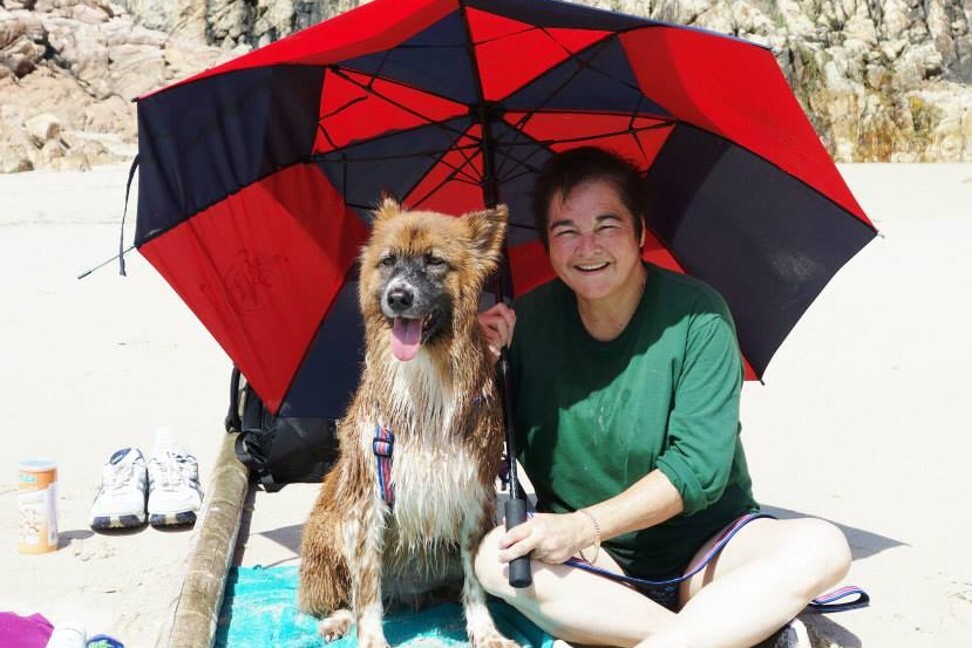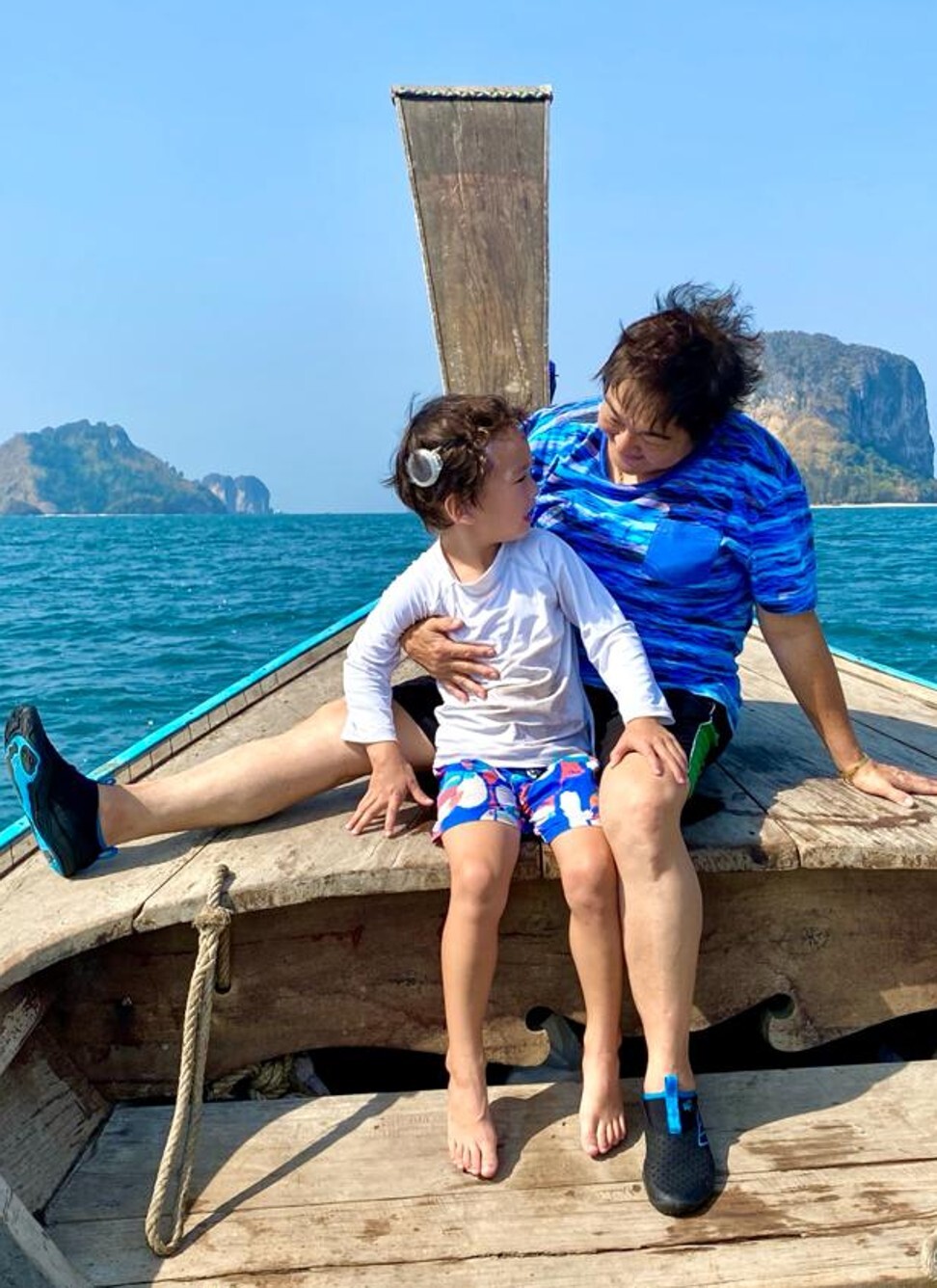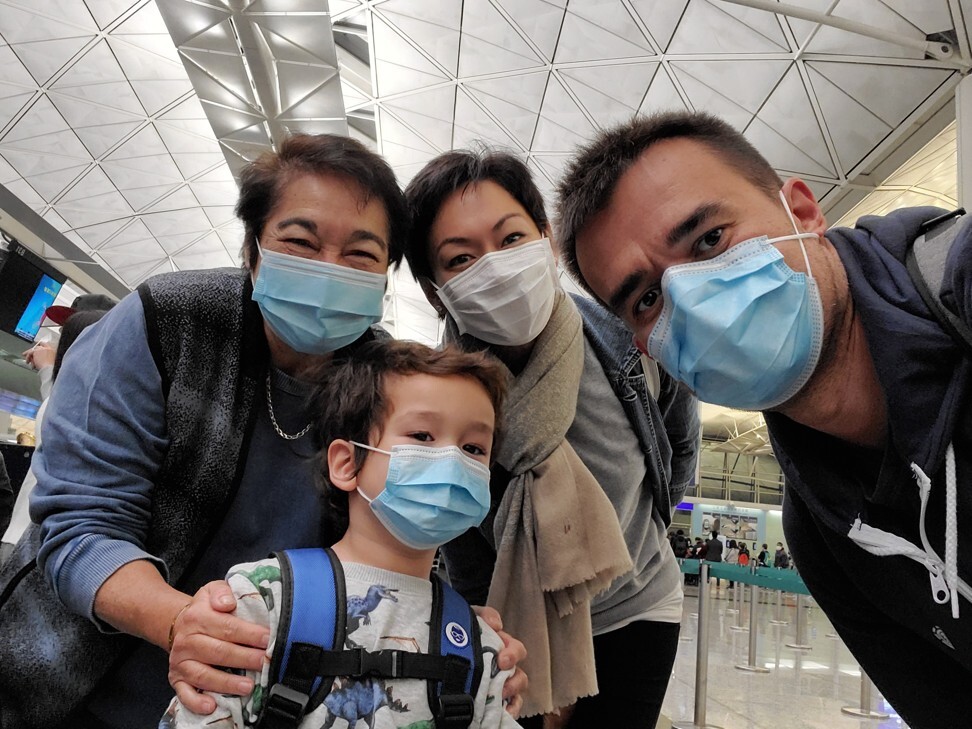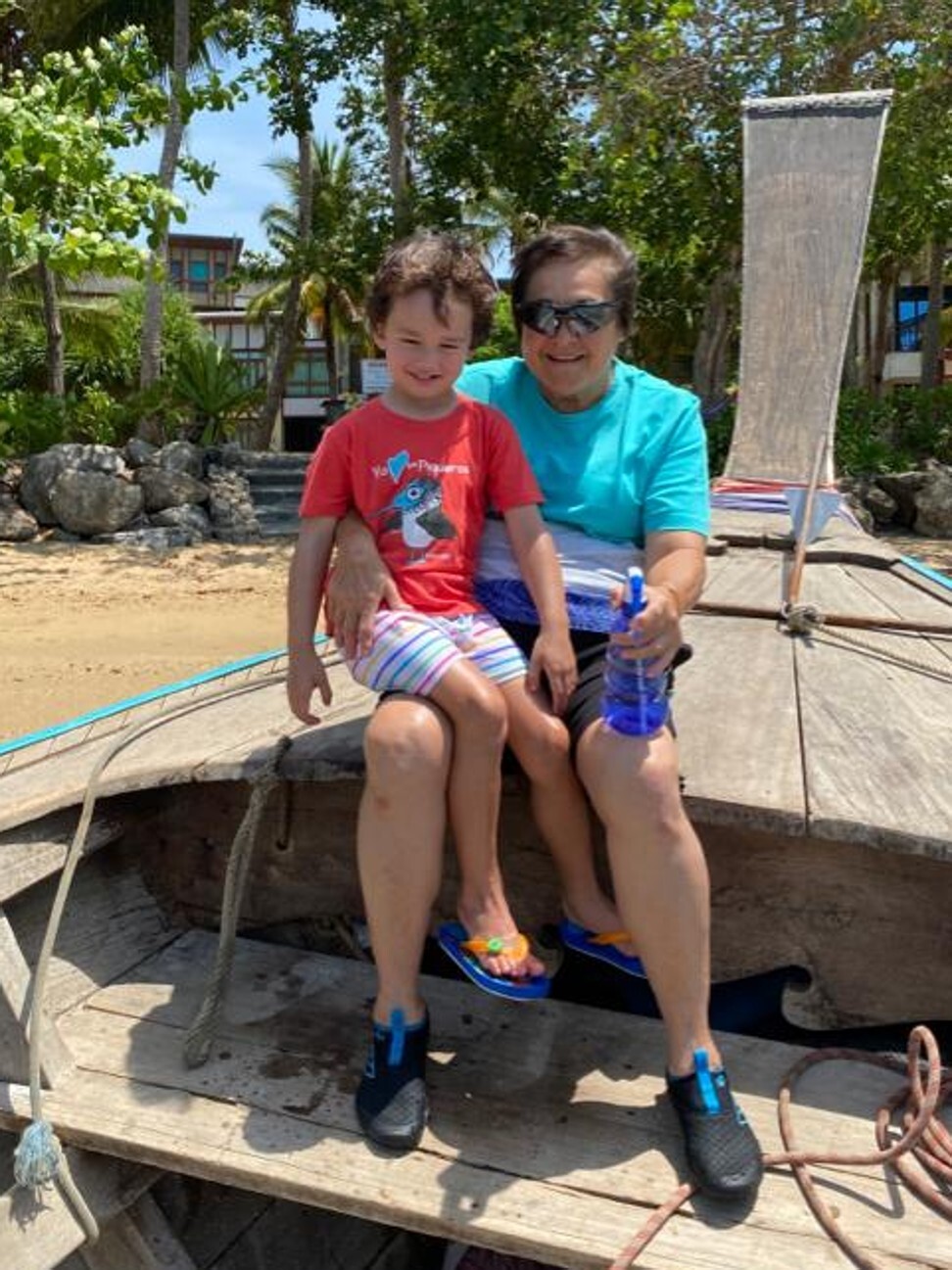
When Kim Fenton learned of pending travel restrictions to stem the coronavirus pandemic, she knew she had to cut short her holiday to be with her beloved 13-year-old dog Zucchi.
As she boarded a flight to Hong Kong from Krabi in Thailand on March 21, leaving her family behind, she had no idea they would be separated for months with no end in sight.
“At the time, I did not know that all flights would soon be cancelled,” Fenton says. She thought she might return to Thailand after she had finished the requisite 14-day quarantine at home for Hong Kong residents who returned from abroad and tested negative for Covid-19. Barring that, with the pandemic in Hong Kong so well controlled, “I thought my family would return from Krabi soon after.”
Her daughter is former Hong Kong swimmer and Olympian Robyn Lamsam, now a professional master of ceremonies. She and husband Marc Convery, a trader, have been in Krabi with their four-year-old son Kyle since the Lunar New Year holiday, having flown there for what they said would be a short trip.

Not seeing them in more than two months has been crushing for Fenton.
“There are actually no words to describe how I feel to be separated from them. I am very close to my daughter. Before this, I had never been apart from my grandson, Kyle, not even for one day since his birth.
Her daughter’s family lives in the same compound as Fenton, so Kyle has had frequent sleepovers at his grandmother’s home when his parents travel.
“I am a fun grandma and super-duper babysitter. So it’s an understatement to say I miss him. I have cried, but I also know I have to be here to look after the dog. If I am away, she mopes.”
Fenton’s experience of long separation from family is playing out across the globe as the pandemic has upended international travels and border controls. Psychologists say they are treating an upsurge in patients who suffer from all kinds of mental problems triggered by family and couple separation and the subsequent loneliness.

Hong Kong clinical psychologist Dr Cindy Chan says she has clients who have broken off relationships with long-distance partners amid the strain.
“Their relationship may not have been that good even before the virus outbreak,” she says, and it is often easier to break up virtually without the need to confront their partners face to face.
“Due to all the social distancing and separation, patients suffer from anxiety, anger, depression, insomnia, irritability. That’s especially the case for old people, as they already lead a rather isolated existence,” Chan says.
The United Nations noted in a May 13 policy brief that the pandemic is likely to lead to a long-term upsurge in the number, and severity, of mental health problems globally. “Psychological distress in populations is widespread,” it said.

Beijing-based Gloria Wong, who is from Hong Kong, can attest to this. Wong works in education and broke up with her boyfriend in Hong Kong in March over the phone. She has not seen her family in Hong Kong since the Lunar New Year in late January.
“I came back to Beijing in early February. My office in Beijing was closed until very recently … I didn’t meet anybody [physically] for months. I have never felt so lonely in my whole life. I have problems sleeping. Lack of sleep made me irritable. There were so many arguments on the phone with my boyfriend that we eventually broke up.”
To lessen her anxiety, Wong had online consultations with a therapist, and held many online meetings with members of her Beijing church, and friends and family in Hong Kong.
“The Zoom meetings are a good distraction from the predicament I am in. My counsellor guides me in looking for self-help videos and podcasts, writing journals, and practising meditation to stop dwelling on my anguish and be mindful of the present.”

Dr Christian Chan, an associate professor of clinical psychology at the University of Hong Kong, says virtual meetings cannot replace physical human connection, and advises people separated from their loved ones to try other creative means to reach out.
“They can send short messages or longer emails, or even presents to their loved ones. The goal is to stay and feel connected and remind one another we are all in this together. It is also advisable that we try our best to lead a more or less normal life and stick to a healthy daily routine,” he says.
“Some people fell into a topsy-turvy lifestyle during the pandemic, eating at irregular times and staying up at night and [sleeping throughout the day]. This itself can take a toll on our health,” he warns.

He suggests those suffering from insomnia or other mental ailments consider web-based self-help options such as cognitive-behavioural therapy.
This short-term technique helps people change their thought patterns to find new ways to behave that will help reduce stress, cope with complicated relationships, deal with grief, and face life challenges. They can also seek help from professionals.
“Feeling stressful is normal, most of the world is facing the same difficulties,” the academic says. “People can [make use of this opportunity to] review their priorities in life and reconsider the balance between work and time spent taking care of themselves and their families.”
I have adjusted my mental state by consciously taking a step back. The pandemic is something that is out of [my] control. There’s absolutely nothing that you can do. I know it will come to an end, it’s just a question of when - Robyn Lamsam
Dr Cindy Chan says people dealing with mental health issues as a result of the coronavirus pandemic should avoid ruminating on their problems and have faith that the situation is only temporary and things are certain to improve in future.
“Their preoccupation with their current dilemma exacerbates their anxiety. Practising mindfulness can improve their mood by turning their attention inward and relishing the present moment. By being mindful of their daily activities, like cooking, they will be able to understand their emotions better and learn to get along with themselves and get enrichment from even being alone.”
Fenton’s daughter Lamsam refrains from thinking about her separation from family and friends and is determined to look on the bright side.
“As the Thai government responded quickly to the Covid-19 outbreak, we are not afraid of its spread here. Since mid-March, Krabi was in lockdown, with all restaurants and tourist spots closed. We mostly stay at home. We have a swimming pool at home and a beach nearby. Our lives are peaceful and pleasant,” Lamsam says.

“I have adjusted my mental state by consciously taking a step back. The pandemic is something that is out of [my] control. There’s absolutely nothing that you can do. I know it will come to an end, it’s just a question of when,” she says.
“I am grateful for the nice home we have here. My son is learning a lot of Thai. He is exploring nature here. It’s just a different experience than the one we are used to.”
She recognises she is fortunate and is making the most of this time to coordinate with friends and family in Hong Kong, the United States, Britain and Australia.
“It just takes a little effort,” Lamsam says, noting they send care packages to each other. “I also have time for writing and other projects that I never get around to doing. Using my connections, I coordinated with personal protective equipment suppliers in China and sent PPE to people and organisations in need. I want to make this as good an experience as possible.”







